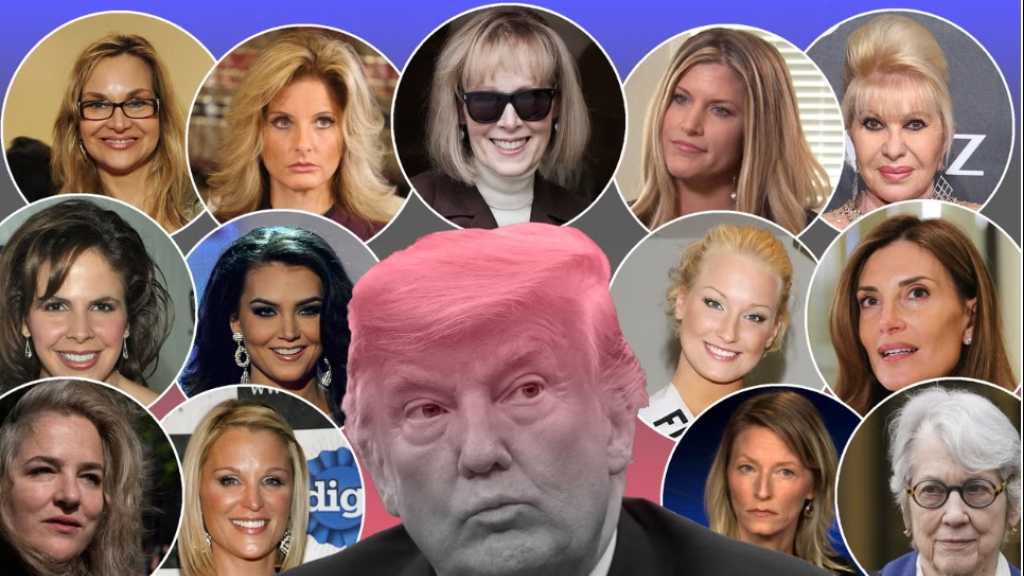Sexual Predators in Power: The Betrayal of Trust in US Politics

By Mohamad Hammoud
In recent years, American politics has been marred by a series of sexual misconduct scandals involving prominent figures, including contemporary presidents, Supreme Court justices, and senators. These revelations expose a troubling reality: the very individuals entrusted with upholding justice, integrity, and morality often fall short of the ethical standards they advocate. This hypocrisy not only undermines public trust in political institutions but also raises critical questions about the moral compasses of those who wield significant power.
A Disheartening Legacy of Presidents
The presidency, often viewed as the epitome of moral leadership, has been tainted by allegations of sexual misconduct from several contemporary leaders. Bill Clinton's affair with Monica Lewinsky during his tenure remains one of the most infamous scandals in US history. Despite his initial denials and the subsequent impeachment trial, Clinton's actions revealed a troubling pattern that contradicted the principles of honesty and accountability expected from a president.
More recently, Donald Trump faced allegations of sexual misconduct from over twenty women spanning several decades. Notably, writer E. Jean Carroll accused him of rape in a department store dressing room in the mid-1990s. In 2023, a jury found Trump liable for sexual abuse and defamation in relation to Carroll's claims, although he denied the allegations.
Additionally, Trump's infamous "Access Hollywood" tape from 2005, where he boasted about grabbing women without their consent, renewed attention to accusations from women like Jessica Leeds and Summer Zervos. His dismissive attitude toward these allegations, often characterized by derogatory remarks and attempts to discredit his accusers, exemplified a blatant disregard for the moral standards he professed to uphold.
President Joe Biden has also faced scrutiny regarding allegations of inappropriate behavior. Tara Reade, a former Senate aide, accused Biden of sexually assaulting her in 1993, an allegation he has emphatically denied. Reade claimed Biden pushed her against a wall and assaulted her in a Senate office building. Additionally, several women, including Lucy Flores, accused Biden of making them uncomfortable through unwelcome physical gestures, such as placing his hands on their shoulders or hugging them too closely. While Biden acknowledged the complaints and pledged to be more mindful of personal boundaries, he firmly denied any malicious intent.
The normalization of such behavior at the highest levels of government sends a troubling message: that power can shield individuals from accountability for their actions, regardless of the harm they inflict on others.
Guardians of Justice or Perpetrators?
The Supreme Court, meant to uphold the rule of law and protect citizens' rights, has also been embroiled in sexual misconduct controversies. The confirmation hearings of Justice Brett Kavanaugh in 2018 brought to light allegations from Dr. Christine Blasey Ford, who accused him of sexual assault during their high school years.
Other women, including Deborah Ramirez, accused him of exposing himself at college parties. Despite the public outcry, Kavanaugh was confirmed to the Supreme Court after a narrow Senate vote.
Similarly, the legacy of Justice Clarence Thomas is fraught with allegations of sexual harassment from Anita Hill, who testified against him during his confirmation in 1991. Despite her compelling testimony, Thomas was confirmed, demonstrating how political and judicial systems often prioritize the careers of powerful men over the voices of women.
Senators and the Culture of Silence
The culture of silence surrounding sexual misconduct extends to the Senate, where numerous allegations have surfaced against sitting senators. The #MeToo movement has prompted many women to come forward with their experiences of harassment and assault at the hands of powerful politicians. Former Senator Al Franken resigned in 2017 after multiple women accused him of groping or making inappropriate advances. Similarly, Republican Congressman Matt Gaetz faced allegations of sexual misconduct, including claims involving an underage girl. These incidents underscore the pervasive issue of harassment within legislative bodies.
Moreover, the reluctance of political institutions to address these issues head-on perpetuates a culture of complicity. The lack of comprehensive policies for addressing allegations of sexual misconduct within Congress creates an environment where perpetrators can thrive while victims are left without recourse. This systemic failure not only harms those who have suffered but also contributes to a broader culture of impunity that allows sexual predators to operate without fear of retribution.
Conclusion
The sexual misconduct scandals involving contemporary presidents, Supreme Court justices, and senators serve as a stark reminder of the hypocrisy inherent in American politics. The very individuals entrusted with upholding justice and morality often succumb to their own failings, perpetuating a culture that enables sexual predators to thrive. Consequently, it is not surprising that these same figures may endorse immoral policies that facilitate the suffering of innocents, such as the “Israeli” attacks on children in Gaza and Lebanon, all in an effort to appease powerful lobbying groups like AIPAC and secure their support in upcoming elections. This troubling dynamic reflects a broader pattern of prioritizing political gain over ethical responsibility, revealing the depths of moral compromise within the halls of power.



